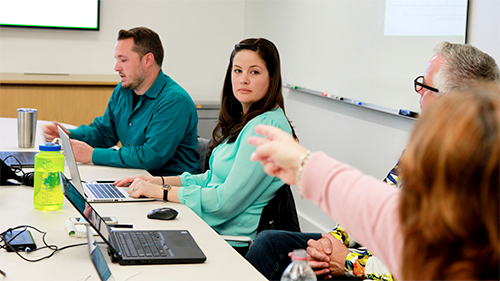The Kuali Research Testing Strategy
 Research administration business process improvement efforts are coming to a close, which means that Kuali Research configuration is underway.
Research administration business process improvement efforts are coming to a close, which means that Kuali Research configuration is underway.
Configuring the system to support the improved business processes is as important as testing the system to meet your needs.
That's why the Kuali Research project team has developed a thorough testing strategy consisting of seven levels.
There are seven areas that are equally important for testing. Each level has its own testing plan to make sure that all components of the system work correctly.
Each level has a different timeframe and at least two phases. This can seem like an overwhelming amount of testing but it is necessary for a successful system implementation go-live.
What are the seven levels of testing and what do they mean for you?
- Unit Testing: Are the system components working properly?
- Tests whether an individual unit of the system functions as expected.
This refers to anything from a field in a form to a button on the interface. - Schedule: Iterations throughout the project timeline.
- Tests whether an individual unit of the system functions as expected.
- Data Migration Testing: Are previous data values displaying correctly in the new system?
- Tests the accuracy of data converted from Coeus to Kuali Research.
Includes historical data. - Schedule: First cycle: Completed in 2018; Second cycle: March – April 2019; Third cycle: April 2019
- Tests the accuracy of data converted from Coeus to Kuali Research.
- Functional Testing: Does the system correctly process values/requests?
- Tests the Kuali Research modules using discrete testing scenarios that involve existing and new functionality.
Ensures proper processing of values through all functions of Kuali Research. - Schedule: May – June 2019
- Tests the Kuali Research modules using discrete testing scenarios that involve existing and new functionality.
- System Integration Testing: Does the system work with other UC San Diego systems?
- Tests the flow of data between Kuali Research and other UC San Diego systems.
- Schedule: June – July 2019
- Business Process Testing: Does the system support business processes?
- Tests that business process results in Kuali Research are comparable to those from Coeus.
- Schedule: July – August 2019
- Performance Testing: Is the system technology performing appropriately?
- Tests the speed and efficiency of Kuali Research when processing tasks or values.
- Schedule: August – September 2019
- User Acceptance Testing: Does the system meet user needs?
- Tests that Kuali Research meets functional requirements and supports business processes at satisfactory levels for the end user.
- Schedule: October – November 2019
Visit the Kuali Research website for more about the Testing Strategy and who is responsible for testing at each level.